In a very smart move, Khloe Kardashian just gave HERSELF an exclusive reveal, explaining the real reason that she broke up with James Harden on her OWN SHOW. According to Khloe, Harden was not faithful, despite Khloe’s original offer to be in an open relationship due to the realistic burdens of their long distance love affair. Harden convinced her to commit and then “wasn’t committed.” As for proof, Khloe has the gift receipts. Need I state the obvious fact that these Kardashian kids have TERRIBLE taste in men? Perhaps Kim changed the game with Kanye, but it took three marriages to do so and his recent outbursts are not working in his favor. Either they make these men go crazy or to quote Patti Stanger, “their picker is broken.”
Why Won’t the Courts #FreeKesha From Dr. Luke? Here’s the Explanation
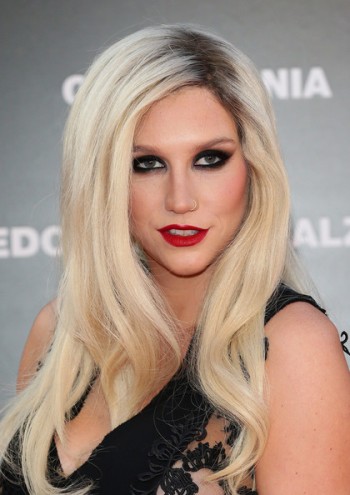 When New York Supreme Court Justice Shirley Kornreich refused Kesha’s requested injunction to release her from Dr. Luke’s Kemosabe Records, which is owned by Sony Music Entertainment, Kesha sobbed in open court. Kesha sued Dr. Luke in 2014 for allegedly drugging, raping, and abusing her. Lukasz “Dr. Luke” Gottwald denies all charges and claims it’s a creative bid to breach her contract. Sony argued that Dr. Luke and Kesha do not have to interact while she performs the remainder of her contact. Their argument seems more like a faux peace gesture rather than a legally binding amendment to her original agreement though, because sources suggest that the contract prevents her from working with anyone but Luke.
When New York Supreme Court Justice Shirley Kornreich refused Kesha’s requested injunction to release her from Dr. Luke’s Kemosabe Records, which is owned by Sony Music Entertainment, Kesha sobbed in open court. Kesha sued Dr. Luke in 2014 for allegedly drugging, raping, and abusing her. Lukasz “Dr. Luke” Gottwald denies all charges and claims it’s a creative bid to breach her contract. Sony argued that Dr. Luke and Kesha do not have to interact while she performs the remainder of her contact. Their argument seems more like a faux peace gesture rather than a legally binding amendment to her original agreement though, because sources suggest that the contract prevents her from working with anyone but Luke.
Many celebrities have spoken up in support of Kesha, most notably Taylor Swift, who donated $250,000 to fund the singer’s legal fund curiously close to some very public criticism from Demi Lovato. The current narrative circling the netscape is something like, “Sony is forcing Kesha to work with her rapist.” As for Dr. Luke, he calls this “trial by twitter.”
While I have not been privy to the actual print in Kesha’s contract, I smell a rat. First, is Kesha worth this much money to Sony, and will she even release anything worthwhile under these conditions? So what’s the angle? Perhaps Sony is concerned about setting a precedent, or more alarmingly — perhaps Luke is worth more to Sony and HIS contract between Kemosabe Records and Sony is nearing an end. Maybe he has threatened to walk away from HIS deal without Sony’s support? Conversely, is it possible that Kesha’s team is in fact playing this card in a ploy to get out of the astounding six-records she has left with Sony? After all, they did allegedly make up a Lady Gaga rape allegation.
There’s a wave of trials in the court of public opinion, and many involve rape. First, taking a rape case to court is excruciating for actual victims, because they are forced to relive their trauma in cross-examination and have their credibility questioned. Second, the shame associated with rape often keeps victims quiet, and the statute of limitations might pass before they choose to speak up. Third, victims are often too traumatized to quickly gather physical evidence post-rape, which leads to a very thin case in court. So is this what happened to Kesha? It’s been widely noted that there is little to no evidence to back up her claims, which is why Luke was not criminally prosecuted. And if he was not in fact criminally prosecuted, can you blame Sony for standing behind him? While our legal system is not kind to victims, I cannot think of a more feasible alternative. Our legal system is founded on “Innocence until proven guilty” for a reason, and I would venture to guess that if given the option, most people would keep it that way.
When someone is accused of a heinous crime, that presumption of innocence means the accuser MUST be cross-examined. Their credibility MUST be called into question, because someone’s life and freedom is at stake. If we were simply to assume guilt and take action as a result, is anyone safe? In Kesha’s defense, Sony should have amended her original contract to create a black and white barring of Luke’s involvement. My guess is he could still make money off the star, given that he found her, and she’s technically under his label. It’s one thing for Sony to suggest his involvement is not necessary, it’s another to put it in writing. If it’s true that Kesha does in fact have to work with her rapist or she’s otherwise in breach, then I cannot fathom a bigger nightmare. But Sony has been warned, and any action on Luke’s part moving forward would be the most clear cut negligence imaginable, and Sony has deep pockets. I’d advise Kesha to consider that.
An Interview With Danny Clinch: Famed Music Photographer
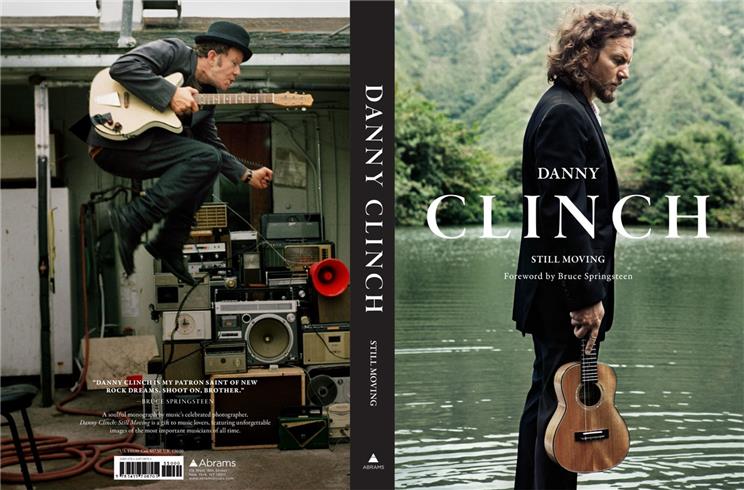
What exactly does it take to capture a rock G-d on camera, and can it be taught? Moments are fleeting, but when you have someone like Danny Clinch in your corner, those moments will live on, with the energy of the room fully intact. As a photographer and music-lover, Clinch is the go-to guy on the music scene, with work that spans album covers and publications like Vanity Fair, Spin, Rolling Stone, GQ, Esquire, and more. The New Jersey native began his career as an intern for famed Vanity Fair photographer, Annie Liebowitz, and though he was exposed to many genres at the time, Clinch found himself drawn to Liebowitz’s “early photos of John Lennon, the Rolling Stones on tour, and a specific one of Duane and Gregg Allman asleep in the back seat of the car.” Clinch “wanted to do it all,” but he just “naturally gravitated toward music.” And in case his photography resume of the Beastie Boys, Tupac Shakur, Johnny Cash and many more isn’t enough, Clinch has earned four Grammy nominations as a director. Plus, he has a book to his name, which is a curated collection of can’t-miss photographs. Read the interview below for a first-hand look inside the creative process of Danny Clinch.
You seem to have an ability to create trust and intimacy with people right away.
I just try to be myself, and I try to treat people as I would like to be treated. My world is relaxed. I’ve worked with other photographers whose world is not relaxed, so there’s tension and they use that to their advantage. I want you to say – “Wow, that was kind of easy, that didn’t feel like a photo shoot, it just felt like we were just hanging out.” I think it’s also important to be a collaborator, where people are interested in contributing to the photo shoot in one way or another. I think their involvement is important, and people won’t contribute if they don’t trust you.
What happens if you come across someone who doesn’t mesh with your style?
I feel them out, and I come with a set group of ideas. I am also very reactionary. For example, if we came into this room while we were sitting here, and maybe if the window’s open and then all of a sudden a cloud blows off the sun and a big streak of light comes through, I might say, “Oh! Go over there really quick! That light is beautiful.” Actually, one time I was photographing Bruce Springsteen for “The Rising” at a recording studio while he was mastering the record, and they said, “Well, you might get him every once in a while for five or ten minutes.” This was my first big shoot, and I thought, “Oh, great.” I was nervous, and he wasn’t really recording so there was a lot of down time. My assistant and I were hanging out in a parking lot. I already had some ideas, and he comes out and he says, “I got like five minutes, let’s do something really quick. What do you got?” I saw this rain puddle in the parking lot. I said, “Go on the other side of that rain puddle, and I’ll get a reflection.” So he goes over, and I got down and focused my camera, and all of a sudden the sun came out and it created this crazy shadow. So not only was it Bruce’s reflection in the puddle, but his shadow on top of it. This is pre-digital so I didn’t know what I got. I had to wait until I got my film back from the lab. I was like, “Oh my God.” I have learned to trust my instincts.
How do you feel about artists that don’t want the audience taking pictures during their concerts? Do you think iPhone cameras distract from the musical experience?
I couldn’t imagine being a performer looking down at someone while you’re singing these heartfelt lyrics and [seeing the audience] on their phone. It’s interesting as a photographer, because a lot of people only allow two songs for the photographer to shoot. Maybe someone should do the same for the audience. It’s only fair. People are missing the experience.
You have said Keith Richards was the classic subject to photograph. What makes a subject so interesting?
Everyone is different. Some people are great collaborators and know how to be in front of the camera, and some people have to learn it. Others will never learn it. They might say, “This is me, I’m going to sit here. You make the photo as best you can,” and it’s up to you to direct them in a certain way or stand them somewhere interesting. Then you have people like Bruce Springsteen or Keith Richards, for example. Keith is the great example, because I had never photographed him and he was on my bucket list. When I got a chance to photograph him, I took a polaroid, and when I looked at it, I had an epiphany and thought, “These weren’t great photographs, this is a great model!” I mean, this guy is unbelievable! He’d just sit there, and just came off so rock ‘n’ roll. You can’t take a bad picture of this guy. Of course, he was pretty cool. He wasn’t super-friendly, but he was immediately into the vibe.
Is it easier with someone who is experienced?
Yeah, and somebody like Bruce Springsteen, who has been photographed so many times, knows how to project, at least to himself. He’s like, “I remember I did this in this photo, and when I got it back I really liked it.” If you’re photographed every single day, you know “this is the better side of my face; this is not.” For instance, this Gregg Allman photo right here which is staring me in the face. It’s a great captured moment, but in my mind, being a photographer who has been there a million times, did he know the photographer was there, and he threw his leg up there and thought, “I’m going to give this to you, go ahead and get it.” [Laughs]
When I think of someone like Keith Richards, he’s such a defined look. Does the look play into it too?
Oh, of course. It’s what people are wearing, their style of dress, their body language, and I’m a big fan of the moment when they’re not quite ready. If I’m having trouble with someone– if they’re a guitar player and I put a guitar in their hands, they all of a sudden forget, their shoulders relax, they start tuning the guitar, it’s a real moment. If you look at some of the photos in this room, for instance, like that Jim Morrison photo by Joel Bronson, it’s very direct, and it’s in a studio. He knows this is not a captured moment; this is a direct portrait. And there’s a lot a lot of value in that too, and I love those moments. My preference is the more captured moment. Also, something that I say in my book, “Still Moving,” is that I don’t always think that a portrait has to be where you can see someone’s face with direct eye contact. There’s a Bob Dylan photo in my book also where he’s looking out a window and I think it’s a beautiful portrait, and it speaks volumes. You don’t see his face but you look at it and you’re like, “That’s Bob Dylan.”
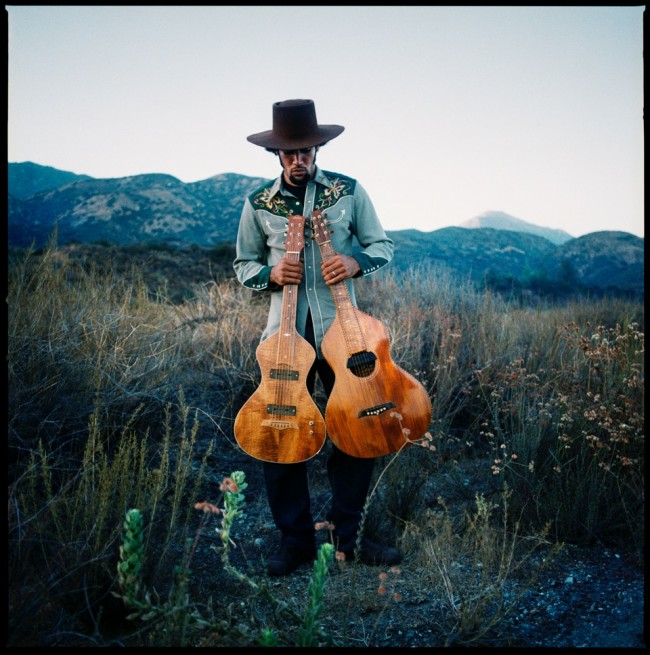
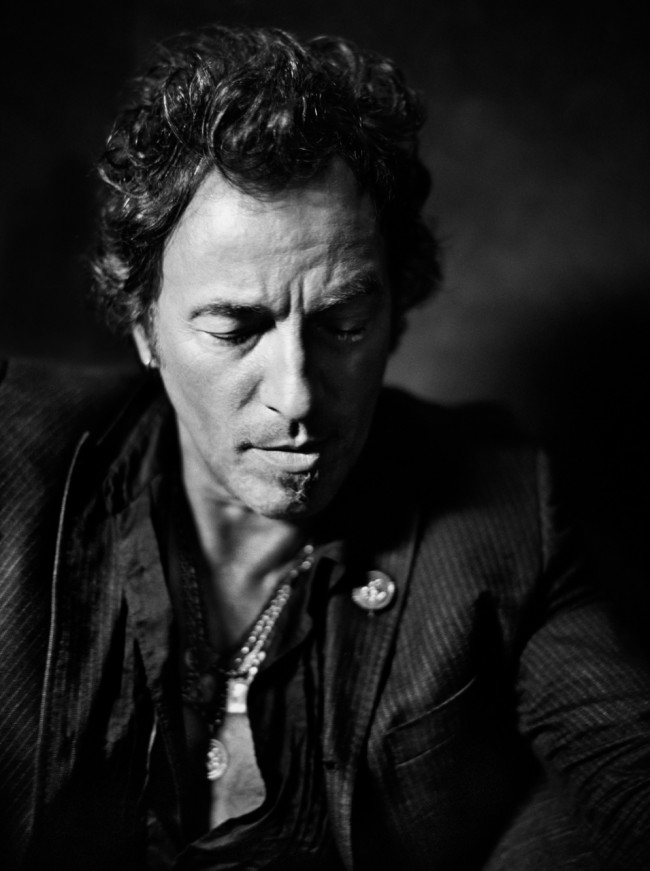
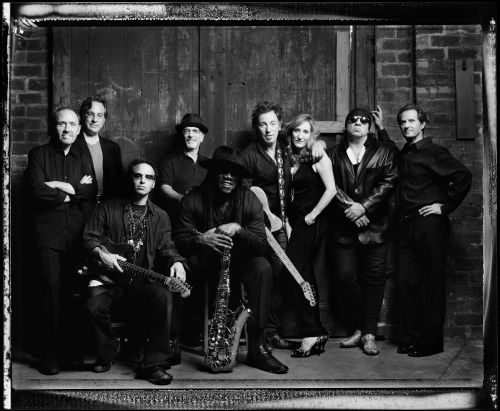

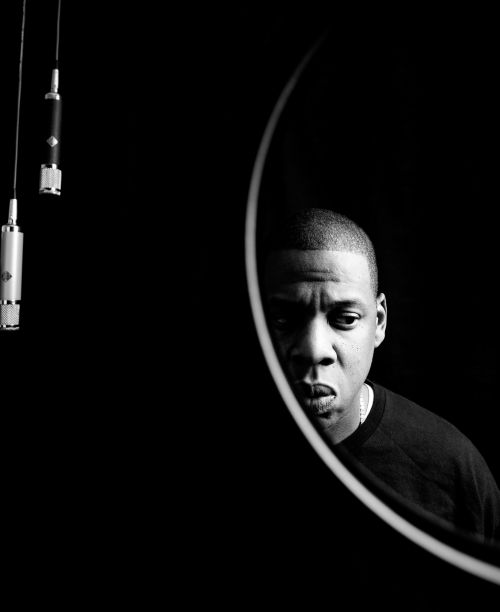
Los Angeles’ Best Kept Concert Secret Returns on February 28! Win Tickets Now
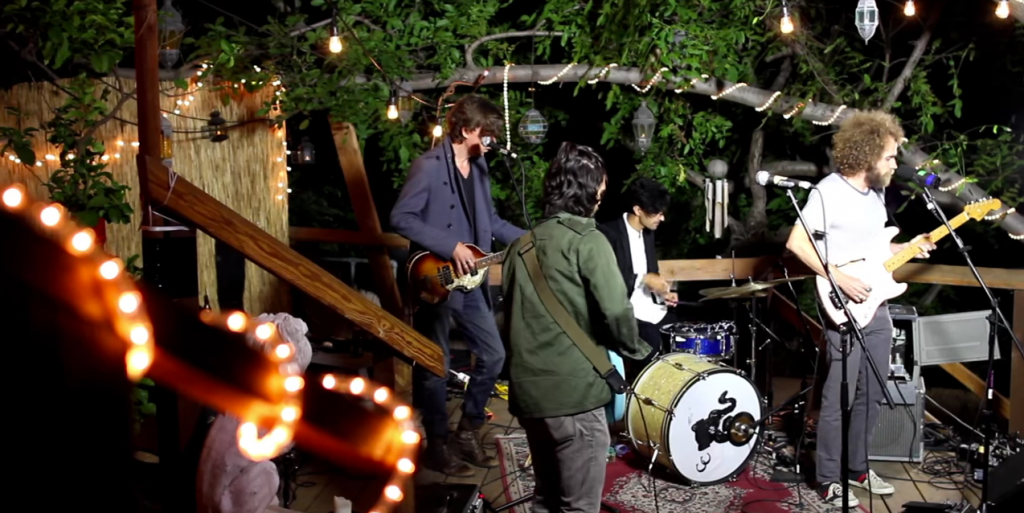
Los Angeles is flooded with secret clubs, restaurants, or underground hangouts, but never before has there been such an cool concert experience with the greatest live sound in town. Hosted by the very talented music influencer and sound engineer Adam Labov, the intimate outdoor experience takes place around a bonfire with tasty food and free drinks (guests are also encouraged to contribute to the laid back experience by bringing your own beverages and bites). Labov’s busy touring schedule limits the exclusive Firepit experience to just a few days each year, so this event is not to be missed. While I cannot reveal the musical act, you can watch previous performances below to trust that Labov has unprecedented musical taste and connections with just about every band in town. If you’d like to attend the top-secret shindig, then simply send an email to Info@TheDishmaster.com with the subject line “Firepit Sessions.” If you win the tickets, I’ll send you the address and information for the show on February 28.
Remember When I Featured Mackenzie Bourg? He’s Back!
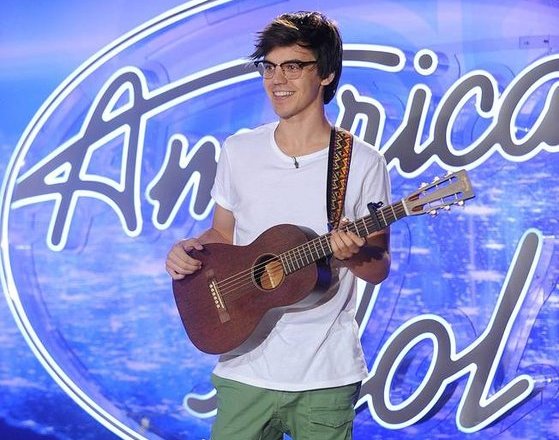 In an effort to gloat, I will take a moment to highlight Top 14 ‘American Idol’ contestant Mackenzie Bourg, with whom I previously shined a spotlight on during his stint on ‘The Voice,’ despite the fact that he prematurely got axed from the rival NBC show.The 23-year-old singer-songwriter from Lafayette, Louisiana sang “Pumped Up Kicks” on ‘The Voice,’ and his tenacious efforts to showcase his talents landed him on FOX’s final season of Idol. Watch below. I have a feeling he’ll go far in the competition, and if he wins, you can expect that I will brag for eternity.
In an effort to gloat, I will take a moment to highlight Top 14 ‘American Idol’ contestant Mackenzie Bourg, with whom I previously shined a spotlight on during his stint on ‘The Voice,’ despite the fact that he prematurely got axed from the rival NBC show.The 23-year-old singer-songwriter from Lafayette, Louisiana sang “Pumped Up Kicks” on ‘The Voice,’ and his tenacious efforts to showcase his talents landed him on FOX’s final season of Idol. Watch below. I have a feeling he’ll go far in the competition, and if he wins, you can expect that I will brag for eternity.
Artist Spotlight: Emmy the Great
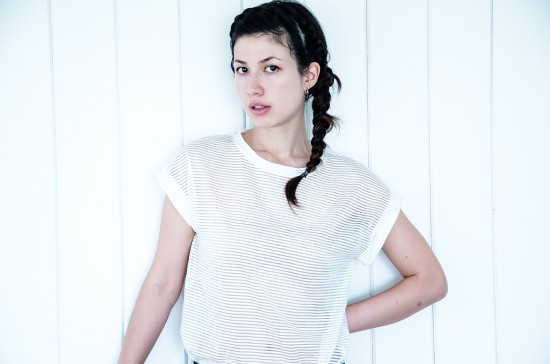
Known by her stage name “Emmy the Great,” London based singer-songwriter Emma-Lee Moss has performed with Indie favorites like Noah and the Whale, but she began releasing solo material in 2006 and her debut album, ‘Virtue’ was released to critical acclaim. Her third record, ‘Second Love,’ will be released March 11. Listen below to “Swimming Pool.”
Kendrick Lamar’s Grammy Performance — Watch Now
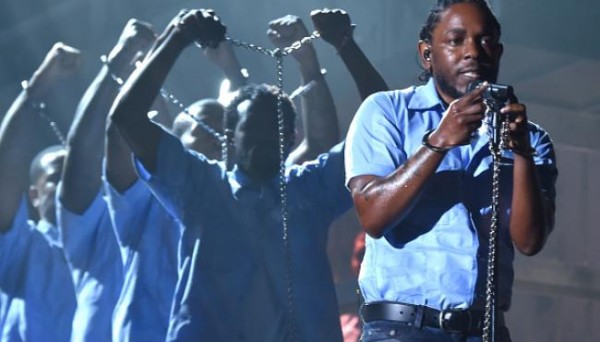
There are few disrupters in mainstream music, and Kendrick Lamar makes the list. On the heels of Beyonce’s kick-ass ‘Formation’ video, Lamar graciously performed at the Grammy’s, proving that even though that awards show doesn’t deserve him, he will give his consistent 100% amidst the night’s many non-contenders. Watch below to see Lamar perform “Alright” off his sophomore album, ‘To Pimp a Butterfly.’ He won five Grammys, and was nominated for seven.
Did Apple Make the Right Decision Saying No to the FBI?

On the surface, Apple’s move to reject the FBI’s plea to unlock the phone of the San Bernardino murderer seems admirable. To install an entirely new operating system in an effort to unlock one phone would compromise the security of all existing customers by creating a “backdoor,” and inviting hackers, not just the FBI, into the mix. All personal information would be at risk and according to Apple, “the same engineers who built strong encryption into the iPhone to protect our users would, ironically, be ordered to weaken those protections and make our users less safe.” It would “be the equivalent of a master key, capable of opening hundreds of millions of locks — from restaurants and banks to stores and homes,” Apple said, and no reasonable person would find that acceptable. Essentially, it’s 1984, and Apple won’t fold.
Apple’s decision is based largely on the potential for disaster, coupled with the government’s breach of privacy. How far would it extend, asks Apple. Could they then, “intercept your messages, access your health records or financial data, track your location, or even access your phone’s microphone or camera without your knowledge?” Apple’s decision is intensely interesting. If I were a sitting Justice on the Supreme Court, I’d be perplexed. As an attorney, I know a lot about setting precedents, and as someone neurotic by nature, I also know about taping the camera on my laptop for fear that someone is watching me. The truth of this is — there is not a right answer. This has to be evaluated on a case-by-case basis, rather than using the All Writs Act of 1789 as a catch-all in any way the government seems fit. For example, what if the San Bernardino killer had a master plan akin to 9/11, and the only way to stop him is for Apple to do as the government asks. Would they still hold firm at the expense of innocent lives? I’m guessing no.
In this particular case, there does not seem to be a future threat, but we are not privy to those facts, and we might never be. In fact, it would be impossible to do a case-by-case analysis, because exposing that information in court would clearly compromise the mission at hand by revealing our plan and knowledge to the bad guys. My point? There’s no easy answer here, and as a society, it’s important to put our heads together in favor of a viable solution, rather than simply landing on a hard line.
Guardians of the Galaxy Vol. 2 Begins Production
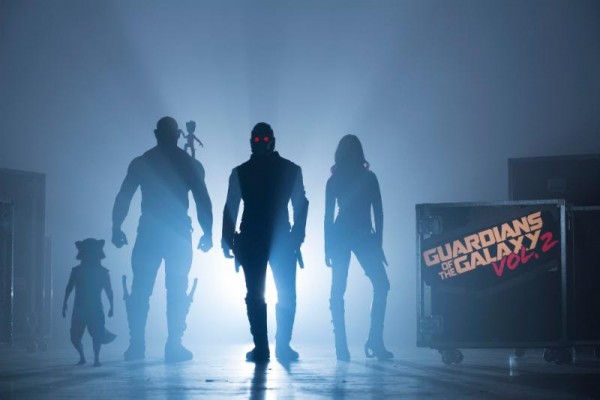
Atlanta has another reason to celebrate those favorable tax laws, because Guardians of the Galaxy Vol. 2 just started production, and the heavy-hitters behind the massive success nixed Los Angeles in favor of The Peach State’s Pinewood Studios. Written and directed by James Gunn, the second film will welcome the return of its starring cast, including Chris Pratt, Zoe Saldana, Bradley Cooper, Vin Diesel, and Dave Bautista. This time around they will “unravel the mystery of Peter Quill’s true parentage.” Expect the Marvel offering on May 5, 2017. Here’s hoping they surpass that pesky $770 million they got the first time.
Why Taylor Swift’s Grammy’s Speech Was Negative and Immature
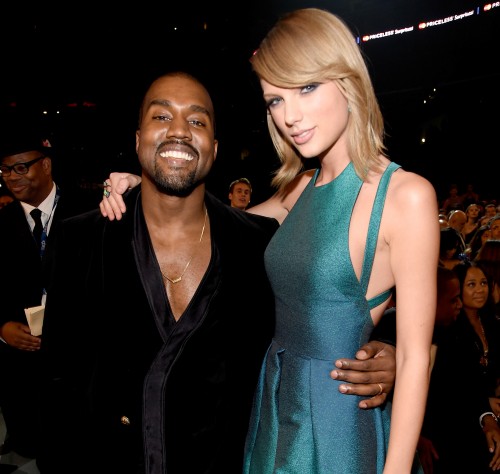
There are two things I know for sure. First, Taylor Swift is humorless. And second, Kanye West is a bloated bag of nuts. When combined, you get a can’t-miss car crash of insults on repeat. For those that missed the back-story, Kanye West inserted a song lyric that said he made “that bitch famous” in reference to Taylor Swift, and insisted that Swift blessed the barb before its release and “found it funny.” Swift countered that she found it misogynistic and objected to the idea that Kanye’s infamous on-stage take-down at the MTV Video Music Awards was responsible for her subsequent super-stardom. I need not state the obvious fact that Swift was already hugely successful. When Swift received the Grammy for Album of the Year last night, she used that moment to take a dig at Kanye West and disguised it in an uplifting bow, saying, “As the first woman to win album of the year at the Grammys twice, I want to say to all the young women out there: there are going to be people along the way who will try to undercut your success or take credit for your accomplishments or your fame. But if you just focus on the work and you don’t let those people sidetrack you, someday when you get where you’re going, you’ll look around and you’ll know it was you and the people who love you who put you there and that will be the greatest feeling in the world.”
The media is making this out to be some beautiful soliloquy of sweetness, rather than what it actually is. A DIG. Why waste even a millisecond of your great moment taking a hit at West, who doesn’t deserve a breath of your time? If the purpose was really to empower women, as she suggested, she could have clearly accomplished that without the negative zing. This is akin to a yoga-loving person that meditates with motivational quotes on her wall while insisting she’s super happy, only to cry each night in the corner of her room. (Too deep?).
I think Taylor Swift is great, and I have two of her albums. I like her. I like her style, and I’ve heard through numerous insiders that she treats everyone in her circle with the greatest respect. I’ve heard she’s kind, professional, and classy. But I’d encourage her to shrug insults off her back a little more often, especially when it comes from heavy-hitters. It just adds darkness to the light she’s trying to emanate, and it sends a bad message.
